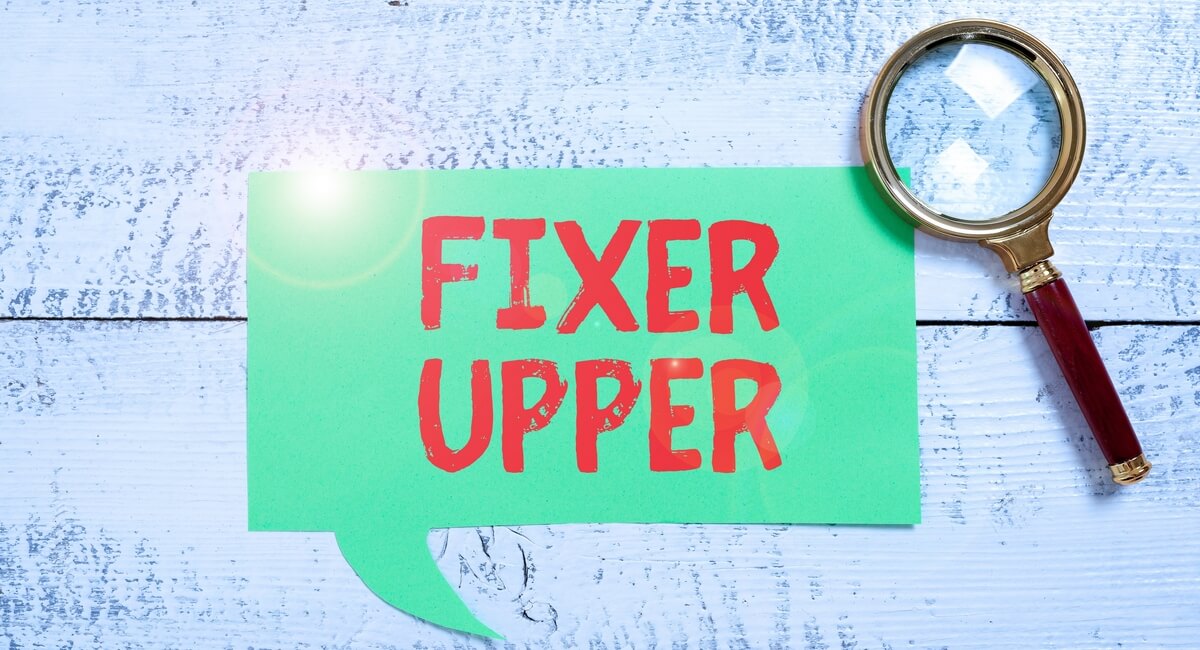Buying a fixer-upper is one of the most popular ways to save money and force equity growth when purchasing a home. If you’re willing to invest the time, energy, and money into renovating a run-down house, a fixer-upper could be the perfect option for you. However, this strategy isn’t for everyone. Repairing a fixer-upper is a significant commitment with its own set of risks. Partnering with an experienced agent can help you navigate these risks and maximize your investment.
Pros of Buying a Fixer-Upper
One of the most appealing advantages of purchasing a fixer-upper is the lower purchase price. Since the home needs substantial work, your down payment and monthly mortgage will likely be much smaller than they would be for a move-in-ready home of similar size. This lower entry cost can be a game-changer, especially for first-time home buyers or investors.
Additionally, fixer-uppers are typically less competitive than ready-to-move-in homes. However, you should be prepared for competition from cash-heavy investors making non-contingent offers and closing quickly. An experienced agent can guide you on structuring a competitive offer while protecting your interests. It’s advisable to conduct a thorough analysis and have multiple exit strategies in place.
There’s a well-known saying in real estate: “Buy the ugliest house in the best neighborhood.” This approach allows you to enter a desirable location at a lower price point and then increase equity through strategic upgrades and repairs. Once the renovations are complete, you might even have the opportunity to refinance into more favorable terms, helping you recoup your investment.
One often-overlooked benefit of buying a fixer-upper is the control you have over your home’s transformation. You get to turn the house into your dream home, choosing everything from the flooring to the paint colors, countertops, lighting fixtures, and more. Whether your priority is renovating the kitchen or upgrading the bathroom, you decide where to invest your money, allowing you to customize the home to your exact preferences.
Cons of Buying a Fixer-Upper
While a fixer-upper can be a great investment, it’s essential to understand the challenges before diving in. Renovations are expensive, particularly when hiring professional contractors. Although we live in a DIY culture, it’s crucial to recognize your limits—this is your home, after all. The purchase price of a fixer-upper may be lower, but the costs of repairs and upgrades can quickly add up, sometimes to the point where you might have been better off buying a move-in-ready home. An experienced agent can help you negotiate not only the purchase price but also additional repair costs uncovered during due diligence. There are also low-cost loan programs available that allow you to finance these repairs and upgrades in advance. Popular fixer-upper loans include the Fannie Mae HomeStyle Renovation Mortgage, the Freddie Mac CHOICERenovation, and the FHA 203(k) loan.
Another challenge is calculating the cost of renovations. It’s vital to have a general idea of what your desired upgrades will cost before moving forward with a home. However, unforeseen expenses are almost inevitable, so it’s wise to build a buffer into your budget and negotiation strategy.
Renovating a fixer-upper also takes time—a lot of time. Many home buyers spend months, even years, getting their house into good shape. The process can feel like a second full-time job, which can be incredibly stressful for you and your household. That’s why I recommend using professionals for major upgrades before moving in. Even with professional help, be prepared to live in a home under construction for several months. One way to manage the chaos is to work on one room at a time.
How to Successfully Buy a Fixer-Upper
If you believe that buying a fixer-upper is the right opportunity, it’s crucial to approach your home search with a solid plan. Work with an agent who knows the area well, understands property values and growth potential, and has a system in place for serving clients interested in fixer-uppers. Choose an agent who is also a skilled negotiator—this will be invaluable as you navigate the complexities of buying and renovating.
Never waive the inspection when buying a fixer-upper. A home inspection, which costs a few hundred dollars, can potentially save you thousands by revealing problems with the property and creating the opportunity to re-negotiate the deal.
While it’s challenging to create an exact budget for a home renovation, you should strive to get as close as possible. Research the cost of materials and labor for each project you plan to complete, and base your offers on that knowledge, ensuring you include a buffer for unforeseen costs. Once you reach an agreement, conduct a thorough analysis and consult with contractors for quotes as needed.
Buying a fixer-upper can be a wise investment under the right circumstances, but it’s important to recognize that it won’t always save you money. The time, effort, and resources required to renovate should not be underestimated. Assess early on if you’re truly up for the challenge.
If you’re ready to explore this path further, schedule a one-on-one Zoom call with me to dive deeper into your vision and determine if purchasing a fixer-upper is the right move for you.





